Black Vs. Brown Hair: What’s The Difference & Tips To Care
Explore the versatility and impact of the two most classic hair colors.
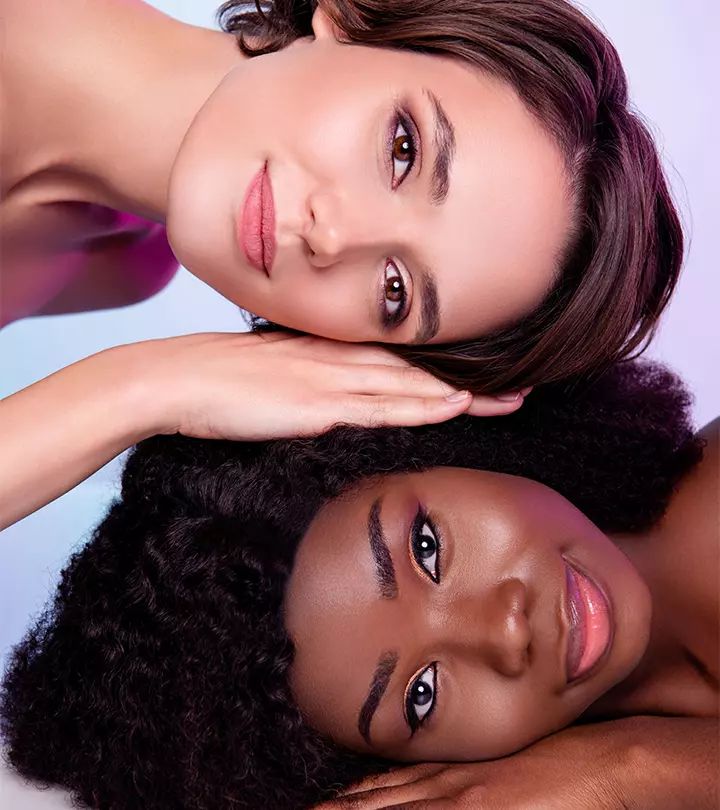
Image: Shutterstock
If you have ever struggled to take a side in the black vs. brown hair debate, you are not alone! The allure of these classic and subtle colors is irresistible, making them the popular colors of choice among beginners and enthusiasts alike. While they might seem similar at first glance, there are subtle differences that make them unique. Black hair is characterized by its deep, rich hue that exudes sophistication and mystery. On the other hand, brown hair color encompasses a wide range of warm shades such as light and dark brown. So, if you need help narrowing down your choice, delve into this article to understand the difference between these two timeless shades and some key care tips to help you achieve your best hair game. Read on!
In This Article
What Are The Advantages And Disadvantages Of Brown Hair Color?
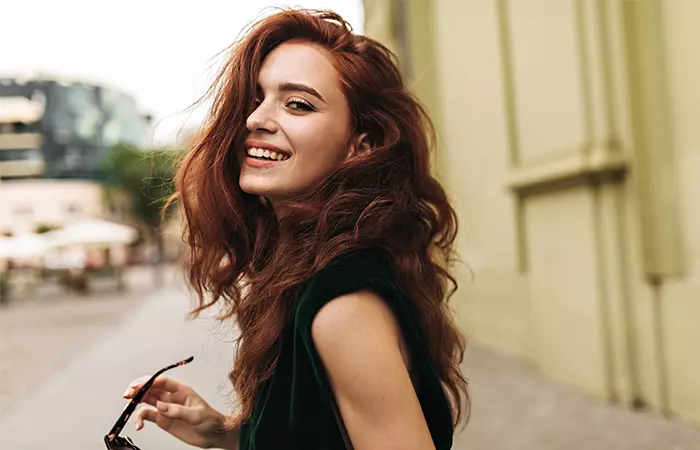
Brown is a common hair color found in various hues, ranging from deep chocolate to caramel and light brunette. It is often associated with traits such as warmth, stability, and reliability. However, the color comes with its own set of advantages and disadvantages.
Advantages Of Brown Hair Color
- It comes in various shades that complement a wide range of skin tones.
- It is versatile and pairs well with various clothing colors and styles.
- It gives off a natural, youthful, and effortless appearance, making it suitable for those who prefer a subtle or understated look.
- It is relatively easy to dye or highlight, offering flexibility to those looking for natural hair color ideas for brunettes to experiment with different tones or add dimension to their hair.
- It brings out and complements various eye colors such as blue, green, hazel, and brown, depending on the shade of brown and the individual’s features.
Disadvantages Of Brown Hair Color
- It may sometimes fade when exposed to bright sunlight or heat appliances frequently.
- It may require more maintenance to keep it looking vibrant and healthy.
- Many people may feel that having brown hair makes them blend in rather than stand out as it is a common shade.
- The limited color contrast options could be a disadvantage for individuals who prefer more dramatic or noticeable changes to their hair color.
While the many shades of brown hair color may appear warm and earthy, black hair shades can mesmerize people with their rich, midnight depths. So, before you go get your hair dyed black, check out the next section for their advantages and disadvantages.
Key Takeaways
- Black hair is characterized by a deep, dark hue, while brown hair encompasses warm colors from light to dark brown.
- Brown hair blends well with various skin tones, whereas black hair color may look harsh on people with warm skin tones.
- Brown hair requires fewer processes to lighten and offers a wide range of highlighting options, whereas black hair requires more intensive bleaching and has limited highlighting options due to high contrast.
- Following proper hair care practices such as using color-safe products and limiting heat styling can help maintain the vibrancy of your hair.
What Are The Advantages And Disadvantages Of Black Hair Color?
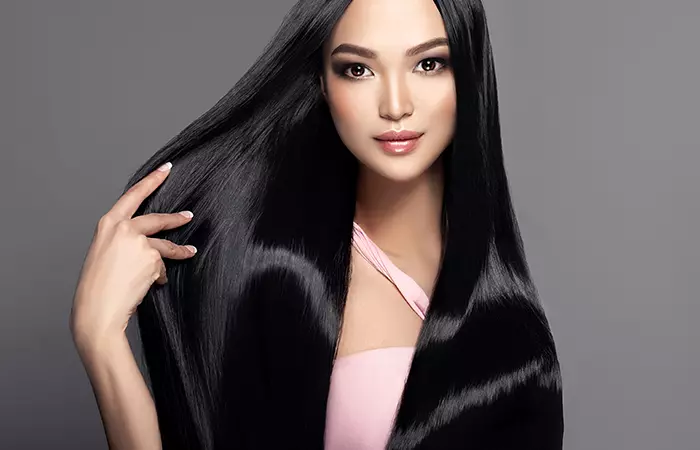
Black hair color is beautiful and exudes an air of mystery and timeless elegance. However, this hair color also comes with both advantages and disadvantages.
Advantages Of Black Hair Color
- It is a color that never goes out of style and is associated with sophistication and a classic aesthetic.
- It has a natural shine that enhances its appearance and makes it look healthy and vibrant.
- It also complements other colors well, making it an ideal choice for a colorful wardrobe.
 Trivia
TriviaDisadvantages Of Black Hair Color
- It may lack dimension and depth and can make your hair look flat and monotonous.
- It may require more maintenance to keep it looking vibrant and healthy and hide root growth if it is dyed.
- Scalp issues such as dandruff or dryness are more noticeable against darker shades like black.
- Achieving lighter shades or vibrant colors on black hair often requires extensive bleaching or multiple sessions that can be time-consuming, expensive, and damaging.
Both black and brown hair colors are versatile shades that allow you to experiment with different looks effortlessly. But how are they different from each other? Scroll down to the next section to find out.
What Is the Difference Between Brown And Black Hair?
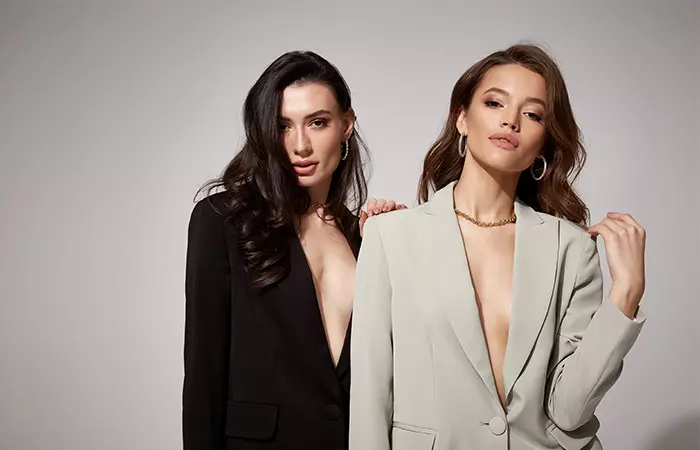
There is no denying that brown and black hair colors are the most sought-after hair shades yet they possess distinct characteristics that set them apart. The following table discusses these differences in detail:
| Attributes | Brown Hair | Black Hair |
|---|---|---|
| Appearance | It comprises shades ranging from light brown to dark brown and is often perceived as warm and inviting. | It is characterized by a jet-black, deep, dark color and is often perceived as sleek and elegant. |
| Naturalness | It is a common hair color that occurs naturally in many people across the world. | It is commonly seen in people of Asian and African descent. |
| Suitability | It blends well with a wide range of skin tones. | It may be too harsh for warm skin tones and only suitable for people with cool skin tones. |
| Maintenance | It is generally low-maintenance due to less noticeable hair root growth. | It requires more maintenance if it is dyed to prevent dullness and hide visible root growth. |
| Lightening | It requires fewer processes and lightens relatively easily with bleach. | It often requires more intensive bleaching to lighten. |
| Highlighting | It offers a wide range of highlighting options that add dimension and warmth to the hair. | It offers high contrast with lighter shades, resulting in limited highlighting options. |
| Versatility | It can be dyed to different colors easily and pairs well with various clothing colors and styles. | It is limited in color options but goes well with almost all types of colorful wardrobes. |
| Graying | It usually blends seamlessly with gray hair, especially lighter shades. | It may make your gray hair roots seem more noticeable due to the high contrast. |
If you are still confused about which shade to choose for your next hair color session even after going through the table above, scroll down to the next section for some simple tips to help you settle on your choice of hair color.
How To Choose Between Black Or Brown Hair Color?
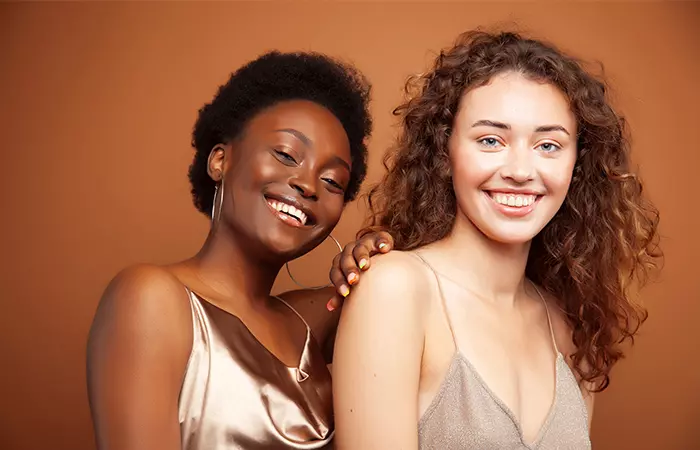
Be it the deep hues of ebony black locks or the warm richness of nut-brown hair, there is no denying that these distinct and subtle shades are captivating and stunning. Here is what you need to do when it comes to choosing the shade that will unlock your hair’s true potential:
Determine Your Skin Tone
Skin tone plays a crucial role as it can greatly affect how the hair color complements your overall appearance. The right color may enhance your natural features, while the wrong choice may wash you out. So, here is what you may choose depending on your skin tone:
- If you have light or fair skin, opt for brown hair colors such as caramel or chestnut.
- If you have medium or olive skin tones, dark shades such as black, deep brown, or warm chocolate shades may work for you.
- If you have a dark skin tone, opt for black or rich brown shades like espresso or mahogany.
Along with your skin tones, it is also important to consider your undertone when choosing your hair shade:
- If you have a warm undertone, opt for warmer tones of brown such as mocha, dark chocolate, honey, cinnamon, or chestnut.
- Those with neutral undertones may choose both black or brown hair, depending on their personal preference.
- If you have a cool skin tone, opt for hair color shades such as smoky or ash-based browns and avoid darker colors like black and dark brown.
 Quick Tip
Quick TipConsider Your Natural Hair Color
If you opt for a color that is significantly different from your natural hair color, it may require more effort to achieve and frequent touch-ups for maintenance. Therefore, choosing a color closer to your natural shade is important. Here is what you should consider when choosing between black and brown hair color:
- If you have very dark hair naturally, transitioning to black or the darkest shade of brown might be easier. It may also require less maintenance. Light brunette colors, on the other hand, may require multiple bleaching and dyeing sessions and more maintenance.
- If your natural hair color is lighter, opt for a shade of brown closer to it for a low-maintenance and seamless look.
Think About Your Personal Style
Your hair can greatly influence your style and how you present yourself to the world. Therefore, it is a good idea to consider personal style before settling on black or brown hair color. Here is what you can do:
- If you love bold and edgy vibes, black hair or dark brunette colors are a perfect way to make a style statement.
- Brown hair color is ideal for anyone who prefers a more natural and classic look that complements various styles.
Do Not Forget The Color of Your Eyes
Certain hair colors complement specific eye colors, enhancing their natural beauty. You may either go for a contrasting shade to create a striking effect or harmonize your hair color with your eye color to create a cohesive look. Here is what you can do:
- Opt for warm brown shades such as caramel or chestnut to enhance green eyes or go for black hair to create a dramatic contrast.
- Choose darker hair colors for brown eyes like black, chestnut, dark chocolate, or cinnamon brown to intensify the warmth of brown eyes or go for light brown shades such as light caramel or sandy brown for a softer look.
- Go for brown hair color if you wish to bring out the reddish brown hues of hazel eyes and black hair to emphasize both the brown and green hues within them.
- Opt for light to medium brown shades to create a soft contrast and complement gray, blue-gray, or blue eyes. Choose black hair color only if you prefer a striking, bold, and dramatic look.
 Quick Tip
Quick TipOnce you get your hair colored with either brown or black hair dye, it is important to maintain it well to keep your hair strands looking vibrant and healthy. The following section will take you through some tips you can follow.
Tips To Maintain Brown Or Black Hair Color
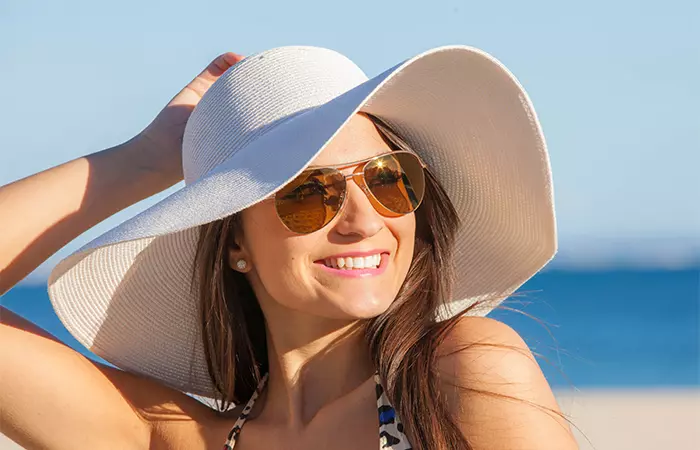
Regardless of the shade, when it comes to brown and black hair care, proper maintenance is essential to keep your tresses looking vibrant and healthy. Maintaining black or brown hair requires proper care and attention to prevent fading, brassiness, damage, or dullness. Here are some tips that may help:
- Use shampoos, conditioners, and other hair products specifically formulated for color-treated hair as they are gentle and help preserve the color for longer periods.
- Wash your colored hair with lukewarm or cool water instead of hot water as the latter may strip the color from your hair and cause it to fade faster. It may also strip your hair’s natural oil, leading to dryness.
- Consider using dry shampoo between washes to keep your hair fresh and prevent color fading.
- Wear a hat or use products with UV filters when spending time outdoors as exposure to direct sunlight may also cause the hair color to fade (1).
- Limit the use of heat-styling tools such as flat irons and curling irons as they can damage your hair and cause the color to fade. If you really have to use a heat styling tool, use a heat protectant spray before it to minimize damage.
- Wear a swim cap before stepping into swimming pool water as the chlorine in it may cause cuticle damage and your hair color to fade (2).
- If you have gray hair or noticeable roots, touch them up regularly to maintain the overall appearance of your hair color.
Janine Lewis, a blogger, shares how she took proper care of her black hair after dyeing it. She writes, “I use shampoo and conditioner which says it is ‘colour revitalising’. This is supposed to protect and maintain the colour in your hair. I also always use heat protection before blow-drying, straightening, crimping, or curling my hair (i).”
Both black and brown are subtle hair colors that are popular among seasoned enthusiasts and beginners alike. However, the distinctive differences between the two make them unique. Black hair color tends to be darker and reflects less light, whereas brown hair encompasses a variety of shades, requires fewer processes, and lightens relatively easily with bleach, as compared to black. Therefore, understanding these differences between them is crucial in selecting the right color for your next dyeing session. Regardless of your choice of hair color, following a hair care routine consisting of using appropriate hair care products for your hair type and color and minimizing heat styling can keep your hair looking its best.
Infographic: Pros And Cons Of Black And Brown Hair Colors
Choosing between black and brown hair is like picking between midnight mystery and sunlit warmth. Black hair captivates with its timeless elegance and is a bold statement of confidence and sophistication. On the other hand, brown hair whispers comfort and versatility. Brown shades blend seamlessly with any hue and highlight your natural charm. Whether you crave drama or want to embrace simplicity, your hair is more than color—it’s an extension of who you are. Let this infographic guide help you decide which shade mirrors your vibe and tells your story. Scroll down to check it out.
Some thing wrong with infographic shortcode. please verify shortcode syntaxFrequently Asked Questions
Can black hair look brown in certain lighting?
Yes, black hair may look brown due to warm indoor lighting and the natural light from the sun. This mainly occurs if your black hair has underlying brown tones, which creates the perception of a brown hue under direct light. Additionally, the presence of highlights and other hair treatments can further affect how black hair is perceived in different lighting environments.
What causes hair to be black or brown?
Melanin, a pigment present in the hair shaft, helps determine the human hair color. This pigment has two main types called black eumelanin and brown eumelanin. The level of these pigments determines whether your hair is black or brown (3). For instance, if you have more brown eumelanin, your hair’s natural color will be dark brown. If this level decreases, it will start moving towards the lighter side.
Can hair color change from black to brown or vice versa?
While the levels of eumelanin in hair largely determine its natural color, your hair may change from black to brown and vice versa due to various factors. For instance, chemical treatments such as hair coloring and bleaching may change your hair from black to brown or vice versa. Similarly, excess exposure to direct sunlight may cause your black hair color to fade and turn brown over time (1). Furthermore, aging can decrease melanin production, which may lead to gray hair (4).
How does ethnicity affect hair color?
Different ethnic groups have varying distributions of genes that determine the amount and type of melanin produced in the hair follicles. For instance, East Asians and African Americans have the highest amount of eumelanin in their hair, leading to brown or black color (4).
Does hair dye affect how to determine hair color?
Yes, Hair dye can affect how one determines hair color as it alters the original hair color. When assessing your hair color, look at the roots instead of the strands of hair.
Black and dark brown hair colors possess a natural beauty that is both striking and timeless. If you are wondering whether you should choose them or go for light brown hair color options, check out the following video to know more.
Personal Experience: Source
StyleCraze's articles are interwoven with authentic personal narratives that provide depth and resonance to our content. Below are the sources of the personal accounts referenced in this article.
i. My experience: dyeing and maintaining black hairhttps://theeverydayalternative.wordpress.com/2018/02/27/my-experience-dyeing-and-maintaining-black-hair/
References
Articles on StyleCraze are backed by verified information from peer-reviewed and academic research papers, reputed organizations, research institutions, and medical associations to ensure accuracy and relevance. Read our editorial policy to learn more.
- The effects of sun exposure on colorant identification of permanently and semi-permanently dyed hair
https://www.ncbi.nlm.nih.gov/pmc/articles/PMC9905578/ - Hair-discoloration of Japanese elite swimmers
https://pubmed.ncbi.nlm.nih.gov/11092265/ - Biochemistry, melanin
https://www.ncbi.nlm.nih.gov/books/NBK459156/ - Hair aging in different races and ethnicities
https://www.ncbi.nlm.nih.gov/pmc/articles/PMC7869811/
Read full bio of Laura Dale
Read full bio of Gracia Odile
Read full bio of Anjali Sayee
Read full bio of Vaishali Sinha





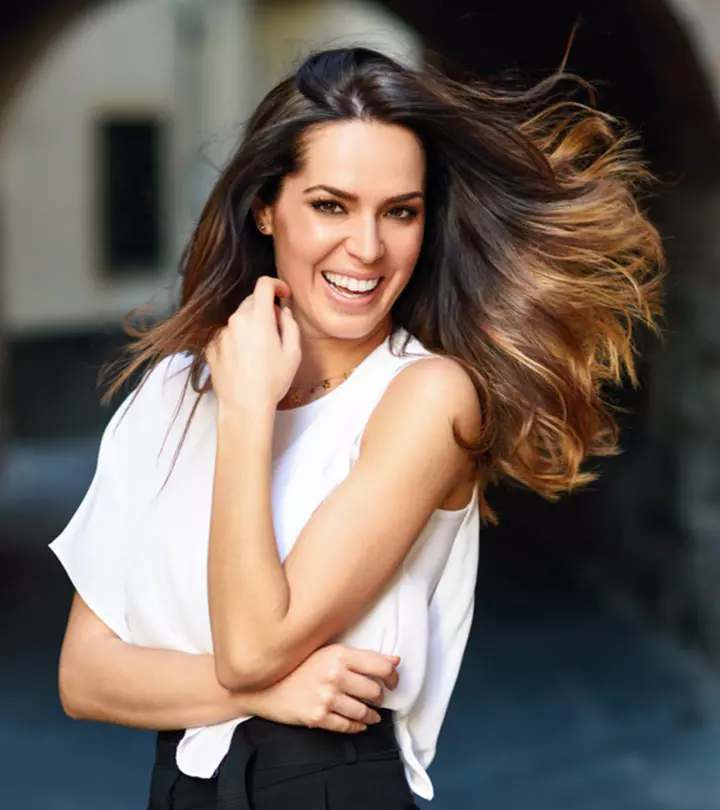
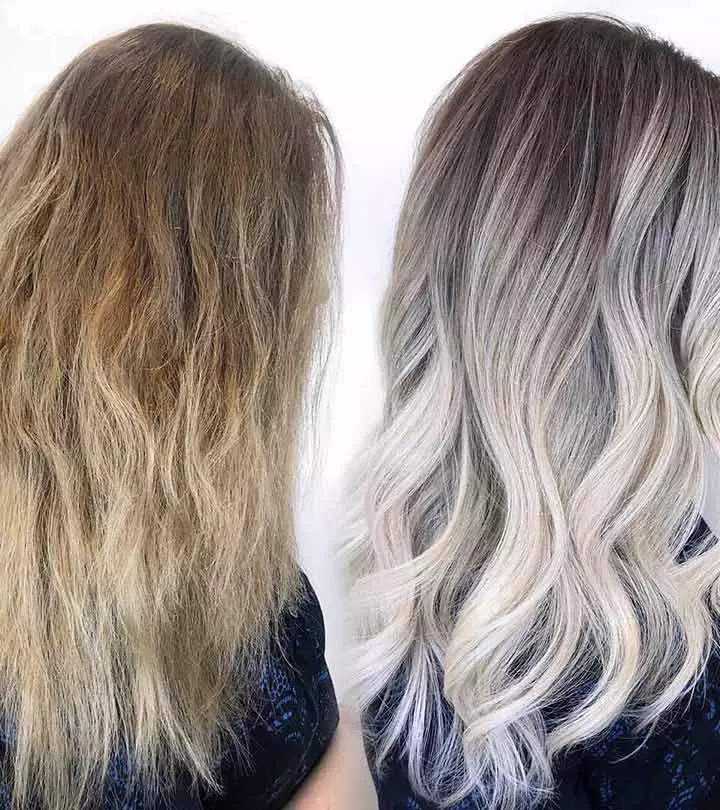
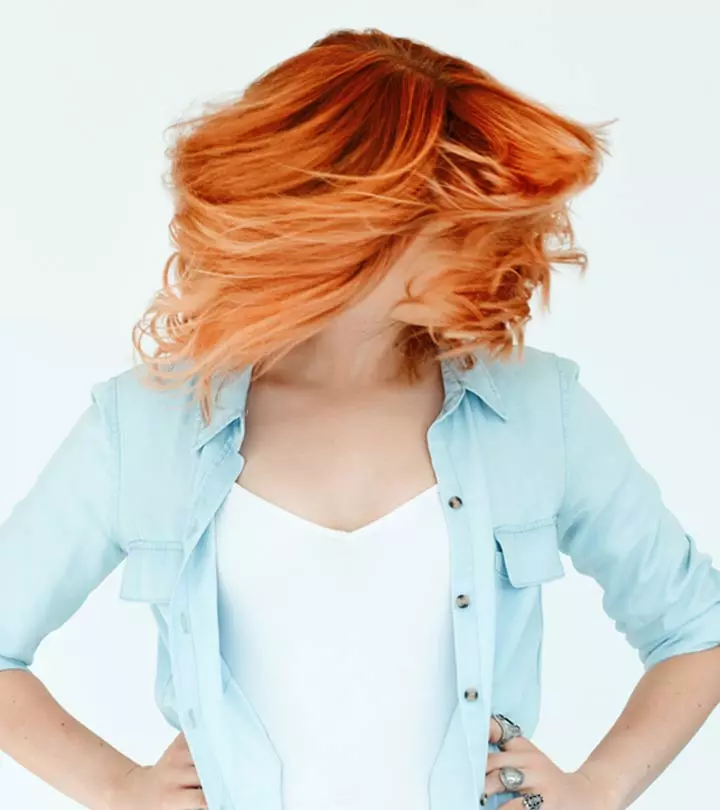
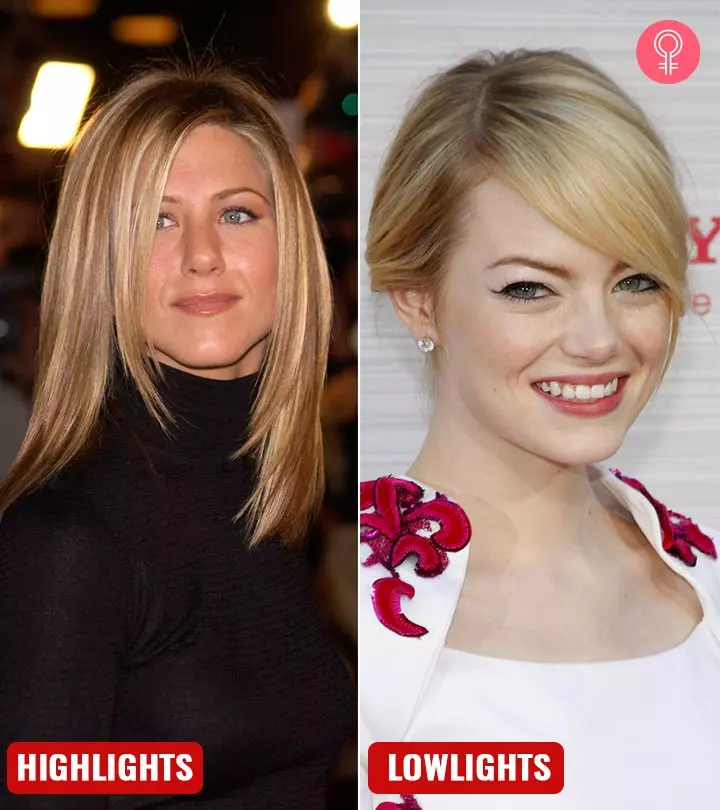
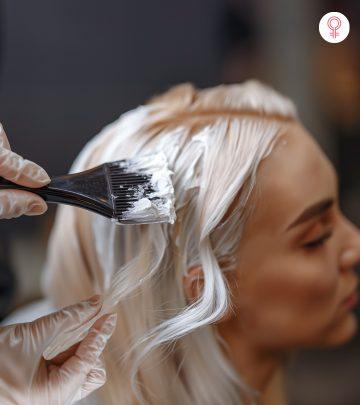
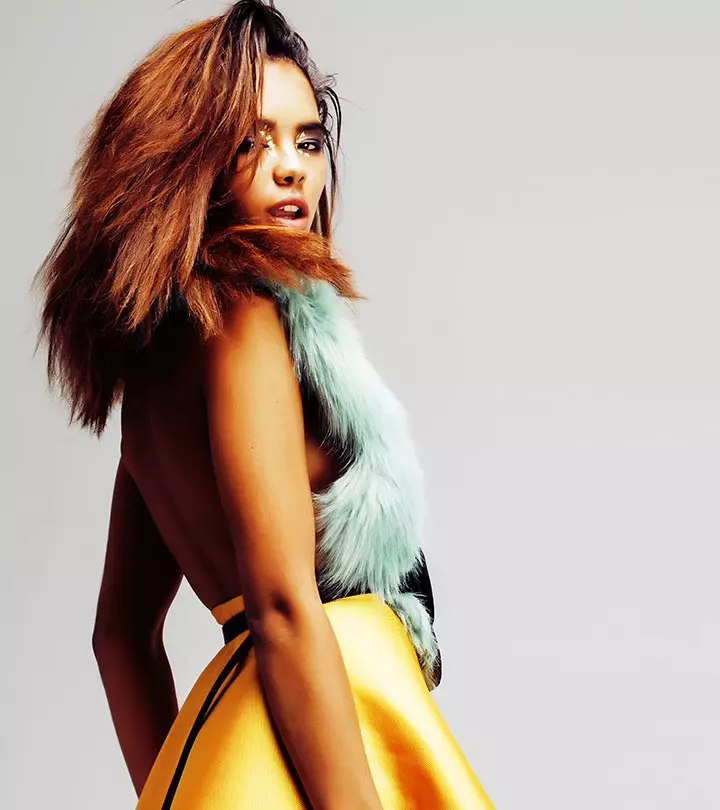
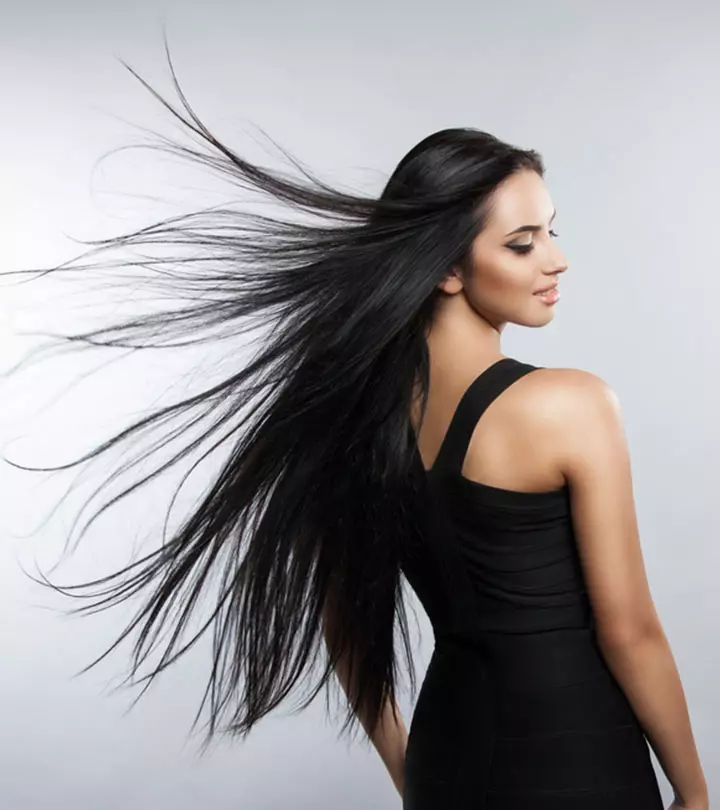
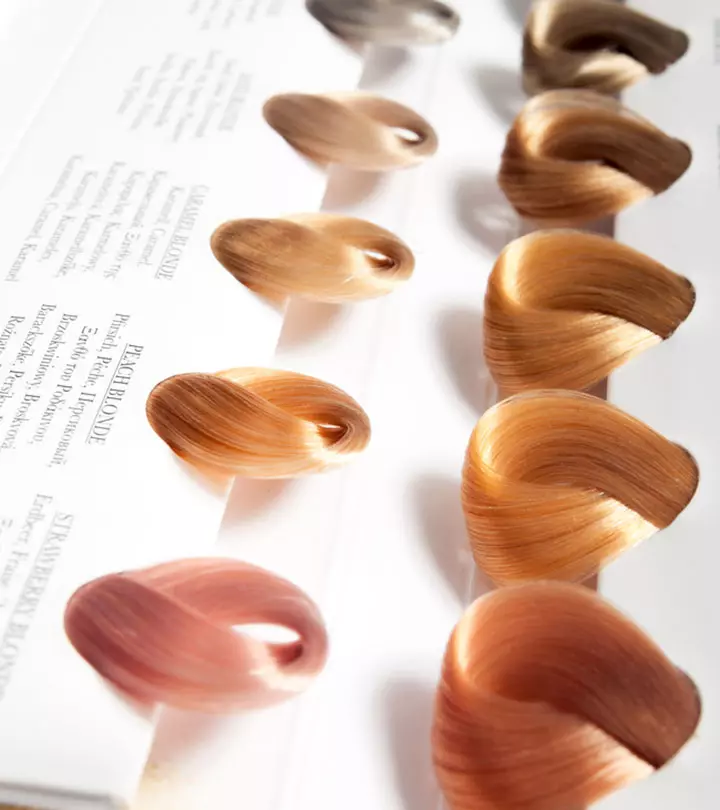
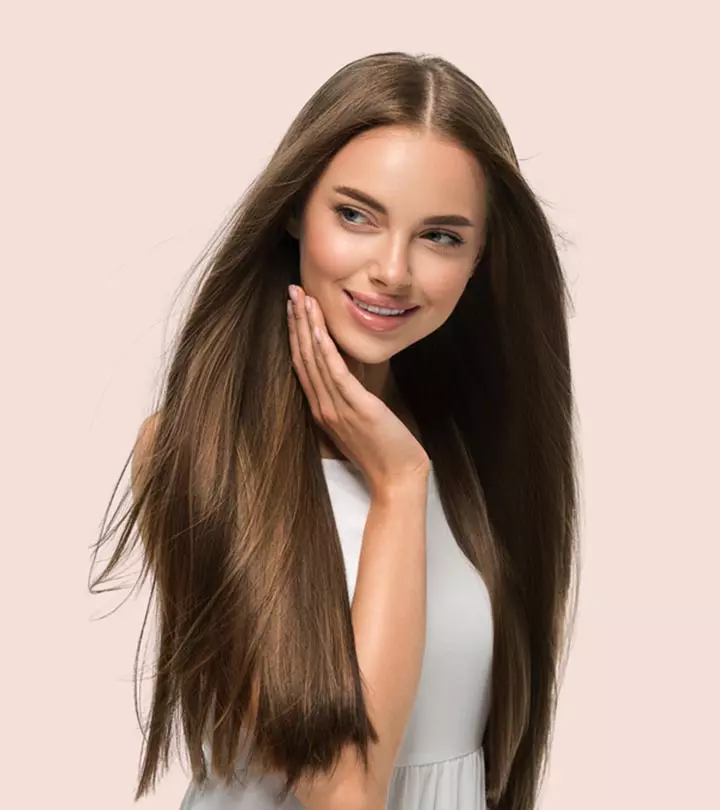
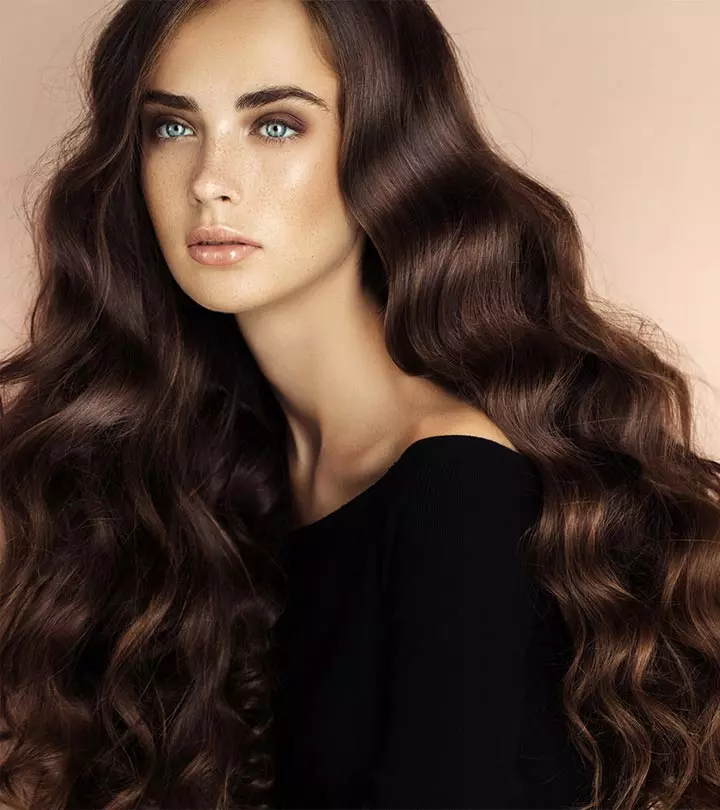
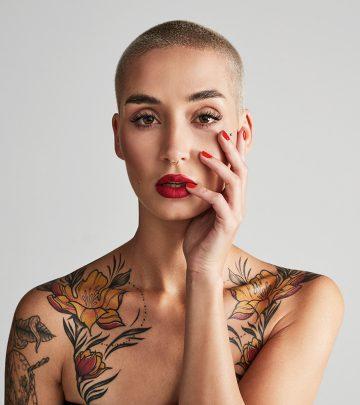

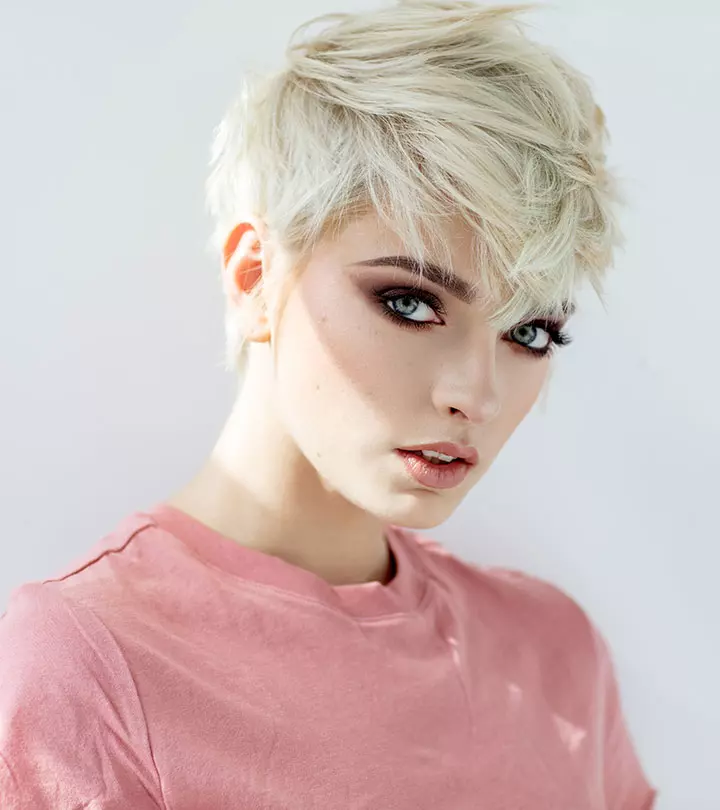
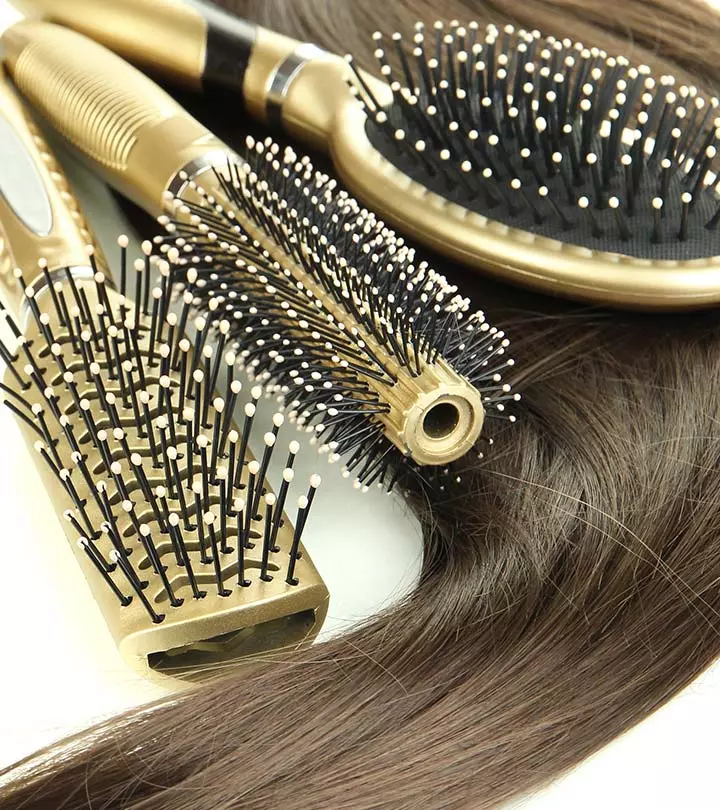
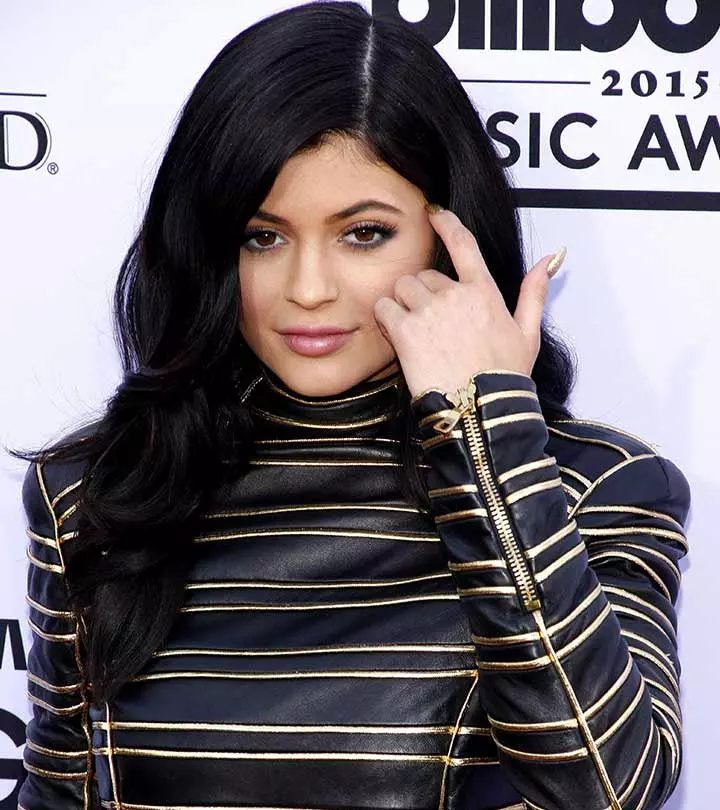
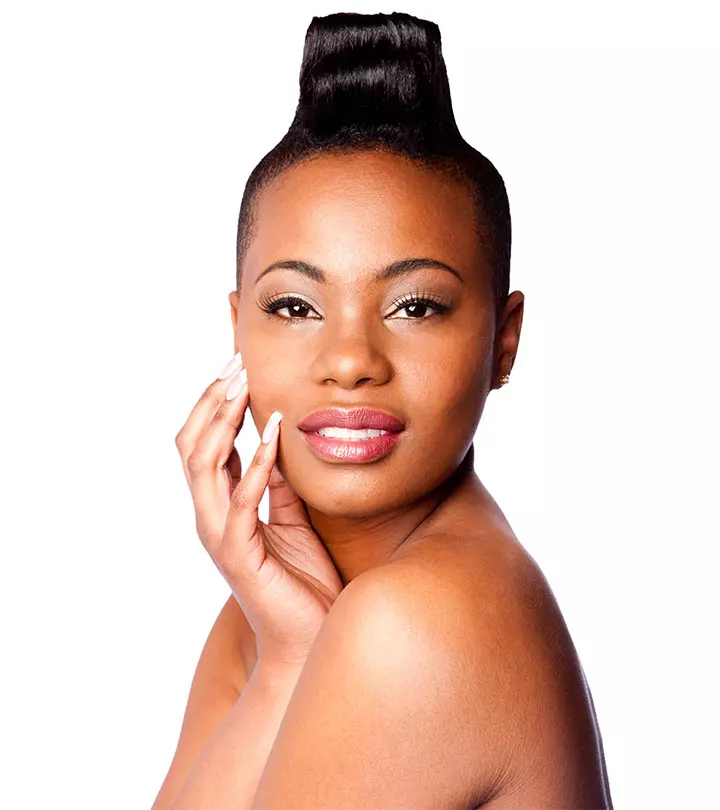
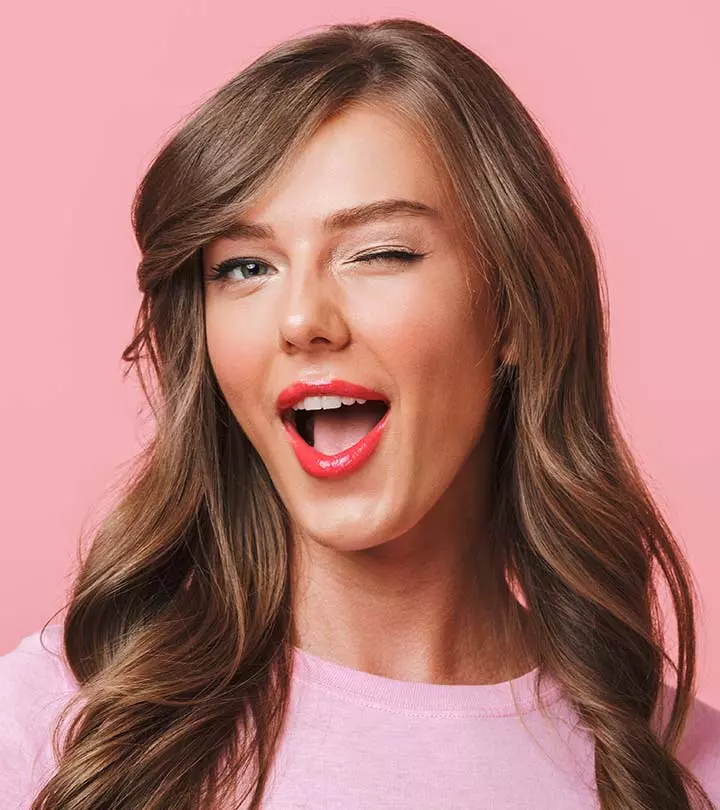
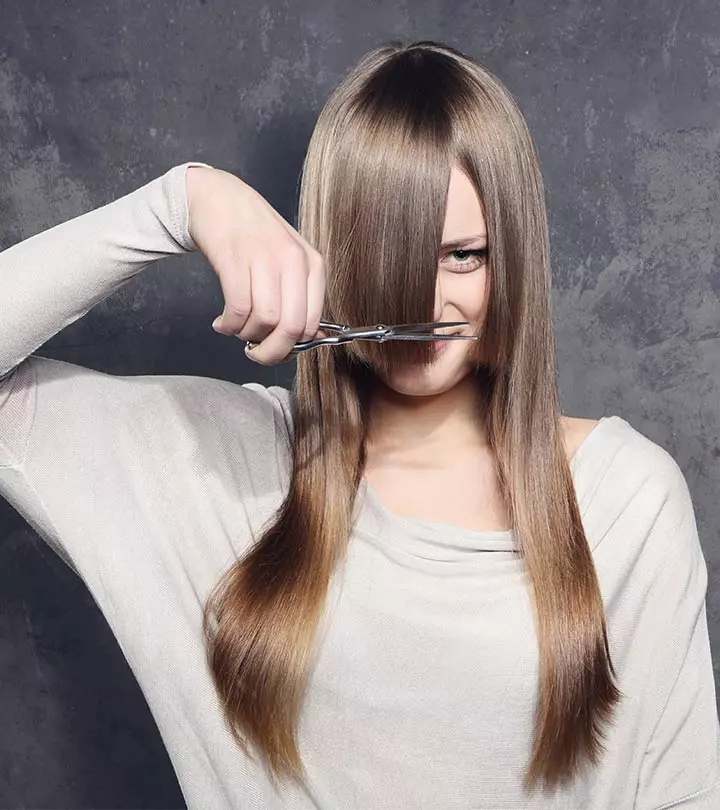
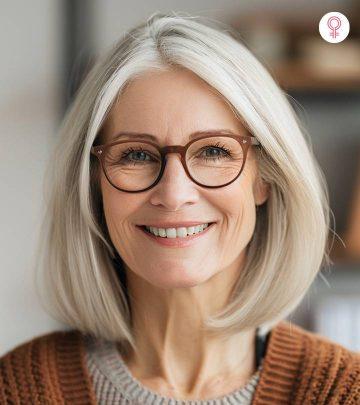
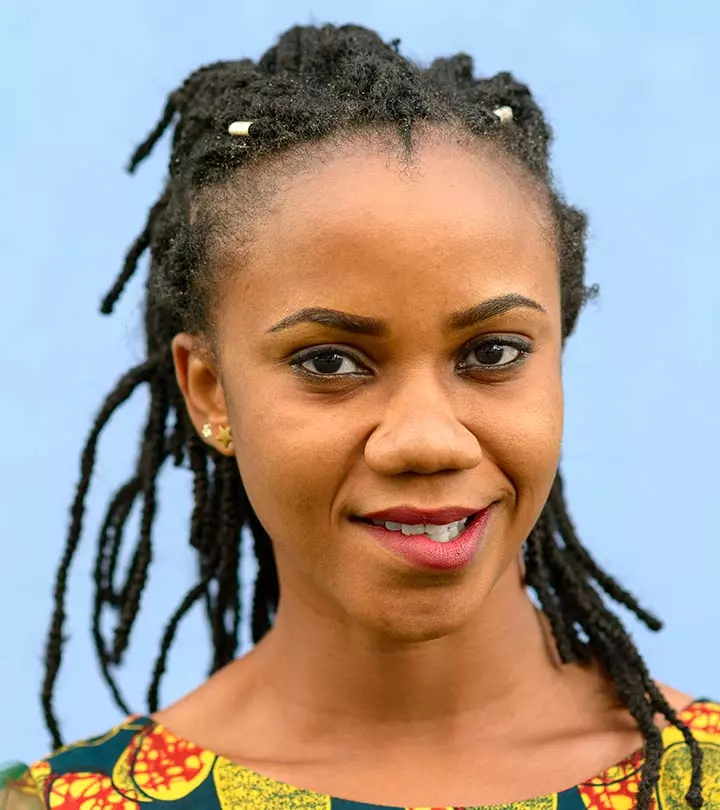
Community Experiences
Join the conversation and become a part of our empowering community! Share your stories, experiences, and insights to connect with other beauty, lifestyle, and health enthusiasts.